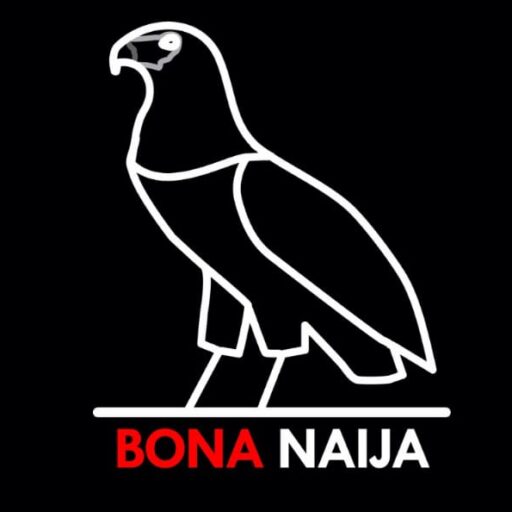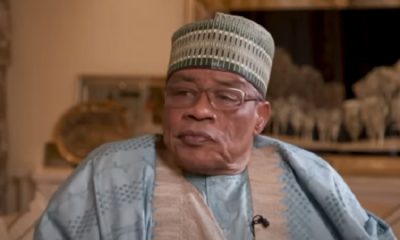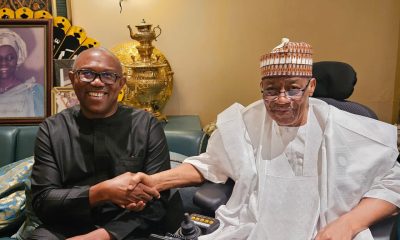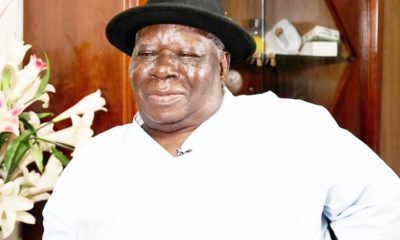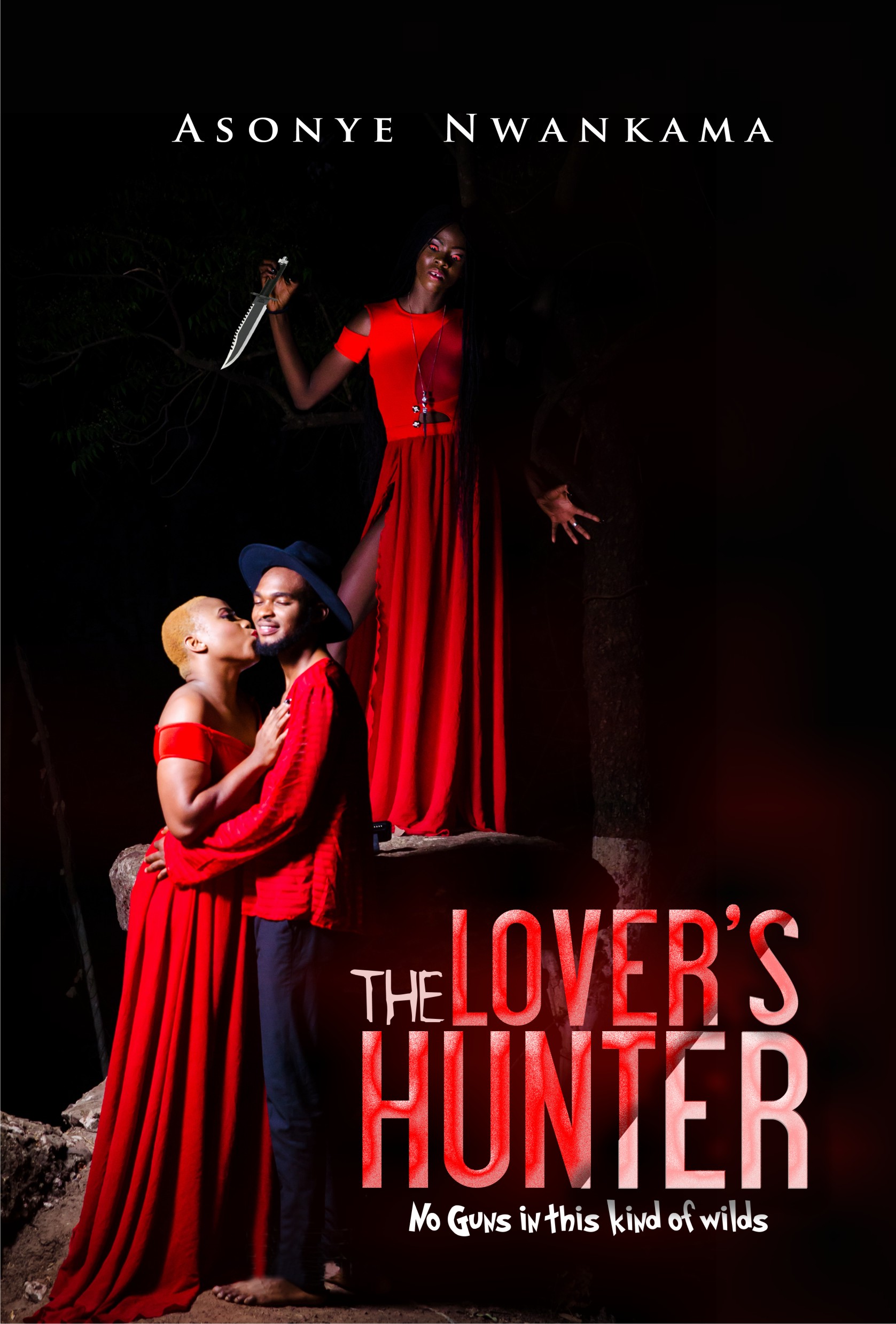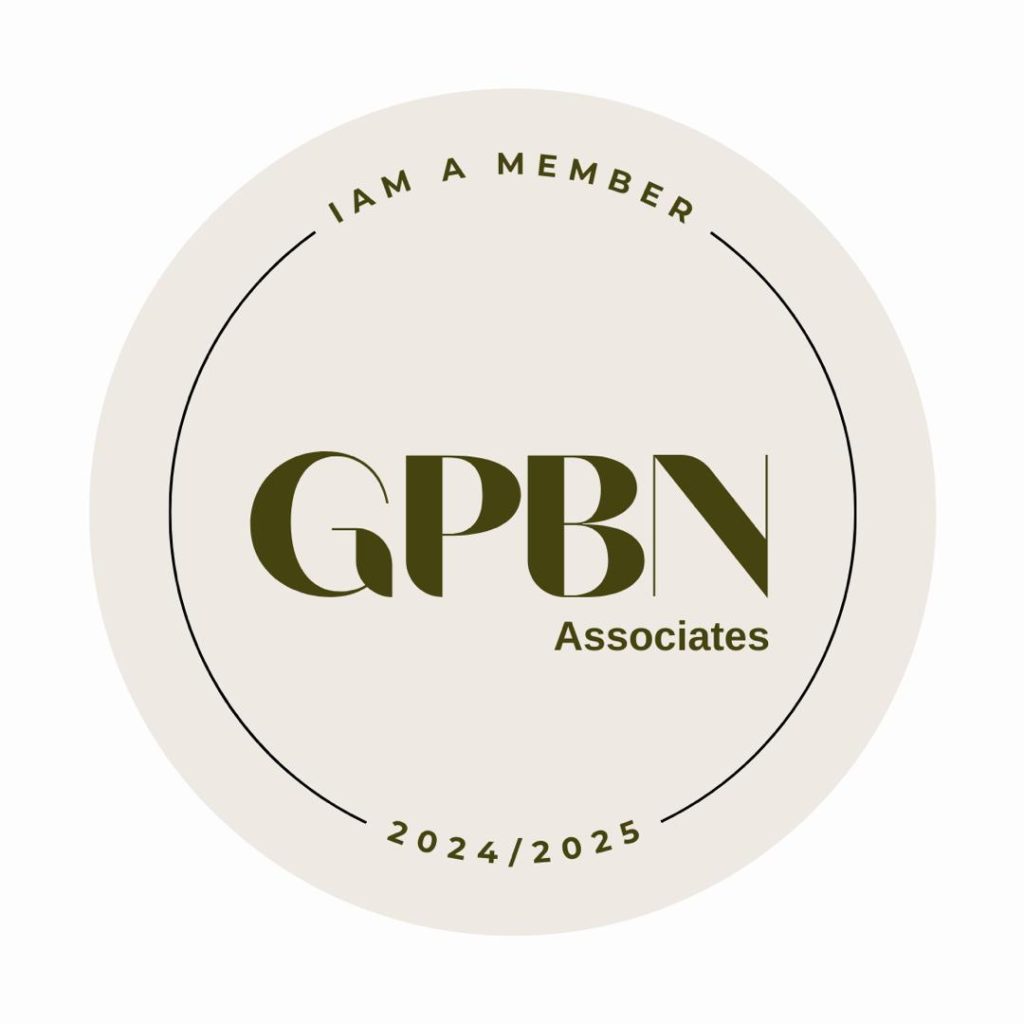

News
Babangida asks Nigerians to vote out Buhari in 2019 (READ FULL TEXT)
Former military president Ibrahim Babangida has asked Nigerians to co-operate with President Muhammadu Buhari until his tenure ends — but vote for a new generation of leaders in 2019.
In a press statement released on Sunday by Kassim Afegbua, his spokesman, Babangida said it was time to sacrifice “personal ambition” for the “national interest”.
His statement is coming on the heels of a similar intervention by former president Olusegun Obasanjo who asked Buhari not to seek re-election.
Babangida, who overthrew Buhari in 1985 and ruled till 1993, said: “In the fullness of our present realities, we need to cooperate with President Muhammadu Buhari to complete his term of office on May 29th, 2019 and collectively prepare the way for new generation leaders to assume the mantle of leadership of the country. While offering this advice, I speak as a stakeholder, former president, concerned Nigerian and a patriot who desires to see new paradigms in our shared commitment to get this country running.
“While saying this also, I do not intend to deny President Buhari his inalienable right to vote and be voted for, but there comes a time in the life of a nation, when personal ambition should not override national interest. This is the time for us to reinvent the will and tap into the resourcefulness of the younger generation, stimulate their entrepreneurial initiatives and provoke a conduce environment to grow national economy both at the micro and macro levels.”
He said the 2019 elections offer “a unique opportunity for Nigerians”.
“The next election in 2019 therefore presents us a unique opportunity to reinvent the will and provoke fresh leadership that would immediately begin the process of healing the wounds in the land and ensuring that the wishes and aspirations of the people are realized in building and sustaining national cohesion and consensus,” he said.
Babangida expressed worries about the state of the nation, pointing out incessant clashes and killings across the country.
“In the past few months also, I have taken time to reflect on a number of issues plaguing the country. I get frightened by their dimensions. I get worried by their colourations. I get perplexed by their gory themes. From Southern Kaduna to Taraba state, from Benue state to Rivers, from Edo state to Zamfara, it has been a theatre of blood with cake of crimson. In Dansadau in Zamfara state recently, North-West of Nigeria, over 200 souls were wasted for no justifiable reason. The pogrom in Benue state has left me wondering if truly this is the same country some of us fought to keep together,” he said.
“I am alarmed by the amount of blood-letting across the land. Nigeria is now being described as a land where blood flows like river, where tears have refused to dry up. Almost on a daily basis, we are both mourning and grieving, and often times left helpless by the sophistication of crimes. The Boko Haram challenge has remained unabated even though there has been commendable effort by government to maximally downgrade them. I will professionally advise that the battle be taken to the inner fortress of Sambisa Forest rather than responding to the insurgents’ ambushes from time to time.”
THE FULL TEXT OF THE STATEMENT
TOWARDS A NATIONAL REBIRTH
In the past few months and weeks, I have played host to many concerned Nigerians who have continued to express legitimate and patriotic worry about the state of affairs in the country. Some of them have continued to agonize about the turn of events and expressly worried why we have not gotten our leadership compass right as a country with so much potential and opportunity for all. Some, out of frustration, have elected to interrogate the leadership question and wondered aloud why it has taken this long from independence till date to discover the right model on account of our peculiarities. At 57, we are still a nation in search of the right leadership to contend with the dynamics of a 21st century Nigeria.
Having been privileged to preside over this great country, interacted with all categories of persons, dissected all shades of opinions, understudied different ethnic groupings; I can rightfully conclude that our strength lies in our diversity. But exploring and exploiting that diversity as a huge potential has remained a hard nut to crack, not because we have not made efforts, but building a consensus on any national issue often has to go through the incinerator of those diverse ethnic configurations. Opinions in Nigeria are not limited to the borders of the political elite; in fact, every Nigerian no matter how young or old, has an opinion on any national issue. And it is the function of discerning leadership to understand these elemental undercurrents in the discharge of state responsibilities.
WHERE WE ARE
There is no gainsaying the fact that Nigeria is at a major crossroads at this moment in its history; the choices we are going to make as a nation regarding the leadership question of this country and the vision for our political, economic and religious future will be largely determined by the nature or kind of change that we pursue, the kind of change that we need and the kind of change that we get. A lot depends on our roles both as followers and leaders in our political undertakings. As we proceed to find the right thesis that would resolve the leadership question, we must bear in mind a formula that could engender national development and the undiluted commitment of our leaders to a resurgence of the moral and ethical foundations that brought us to where we are as a pluralistic and multi-ethnic society.
Nigeria, before now, has been on the one hand our dear native land, where tribes and tongues may differ but in brotherhood we stand, and on the other hand a nation that continues to struggle with itself and in every way stumbling and willful in its quest to become a modern state, starting from the first republic till date. With our huge investments in the African emancipation movements and the various contributions that were made by our leadership to extricate South Africa from colonial grip, Nigeria became the giant of Africa during that period. But having gone through leadership failures, we no longer possess the sobriety to claim that status. And we all are guilty.
We have experimented with Parliamentary and Presidential systems of government amid military interregnum at various times of our national history. We have made some progress, but not good enough to situate us on the pedestal we so desirously crave for. It is little wonder therefore that we need to deliberately provoke systems and models that will put paid to this recycling leadership experimentation to embrace new generational leadership evolution with the essential attributes of responsive, responsible and proactive leadership configuration to confront the several challenges that we presently face.
In 2019 and beyond, we should come to a national consensus that we need new breed leadership with requisite capacity to manage our diversities and jump-start a process of launching the country on the super highway of technology-driven leadership in line with the dynamics of modern governance. It is short of saying enough of this analogue system. Let’s give way for digital leadership orientation with all the trappings of consultative, constructive, communicative, interactive and utility-driven approach where everyone has a role to play in the process of enthroning accountability and transparency in governance.
I am particularly enamored that Nigerians are becoming more and more conscious of their rights; and their ability to speak truth to power and interrogate those elected to represent them without fear of arrest and harassment. These are part of the ennobling principles of representative democracy. As citizens in a democracy, it is our civic responsibility to demand accountability and transparency. Our elected leaders owe us that simple but remarkable accountability creed. Whenever we criticize them, it is not that we do not like their guts; it is just that as stakeholders in the political economy of the country, we also carry certain responsibilities.
In the past few months also, I have taken time to reflect on a number of issues plaguing the country. I get frightened by their dimensions. I get worried by their colourations. I get perplexed by their gory themes. From Southern Kaduna to Taraba state, from Benue state to Rivers, from Edo state to Zamfara, it has been a theatre of blood with cake of crimson. In Dansadau in Zamfara state recently, North-West of Nigeria, over 200 souls were wasted for no justifiable reason. The pogrom in Benue state has left me wondering if truly this is the same country some of us fought to keep together. I am alarmed by the amount of blood-letting across the land. Nigeria is now being described as a land where blood flows like river, where tears have refused to dry up. Almost on a daily basis, we are both mourning and grieving, and often times left helpless by the sophistication of crimes. The Boko Haram challenge has remained unabated even though there has been commendable effort by government to maximally downgrade them. I will professionally advise that the battle be taken to the inner fortress of Sambisa Forest rather than responding to the insurgents’ ambushes from time to time.
THINKING ALOUD
In the fullness of our present realities, we need to cooperate with President Muhammadu Buhari to complete his term of office on May 29th, 2019 and collectively prepare the way for new generation leaders to assume the mantle of leadership of the country. While offering this advice, I speak as a stakeholder, former president, concerned Nigerian and a patriot who desires to see new paradigms in our shared commitment to get this country running. While saying this also, I do not intend to deny President Buhari his inalienable right to vote and be voted for, but there comes a time in the life of a nation, when personal ambition should not override national interest. This is the time for us to reinvent the will and tap into the resourcefulness of the younger generation, stimulate their entrepreneurial initiatives and provoke a conduce environment to grow national economy both at the micro and macro levels.
Contemporary leadership has to be proactive and not reactive. It must factor in citizens’ participation. Its language of discourse must be persuasive not agitated and abusive. It must give room for confidence building. It must build consensus and form aggregate opinion on any issue to reflect the wishes of the people across the country. It must gauge the mood of the country at every point in time in order to send the right message. It must share in their aspirations and give them cause to have confidence in the system. Modern leadership is not just about “fighting” corruption, it is about plugging the leakages and building systems that will militate against corruption. Accountability in leadership should flow from copious examples. It goes beyond mere sloganeering. My support for a new breed leadership derives from the understanding that it will show a marked departure from recycled leadership to creating new paradigms that will breathe fresh air into our present polluted leadership actuality.
My intervention in the governance process of Nigeria wasn’t an accident of history. Even as a military government, we had a clear-cut policy agenda on what we needed to achieve. We recruited some of the best brains and introduced policies that remain some of the best in our effort to re-engineer our polity and nation. We saw the future of Nigeria but lack of continuity in government and of policies killed some of our intentions and initiatives. Even though we did not provide answers to all the developmental challenges that confronted us as at that time, we were not short of taking decisions whenever the need arose.
GROWING INSECURITY ON OUR HANDS
The unchecked activities of the herdsmen have continued to raise doubt on the capacity of this government to handle with dispatch, security concerns that continue to threaten our dear nation; suicide bombings, kidnappings, armed banditry, ethnic clashes and other divisive tendencies. We need to bring different actors to the roundtable. Government must generate platform to interact and dialogue on the issues with a view to finding permanent solutions to the crises. The festering nature of this crisis is an inelegant testimony to the sharp divisions and polarizations that exist across the country. For example, this is not the first time herdsmen engage in pastoral nomadism but the anger in the land is suggestive of the absence of mutual love and togetherness that once defined our nationality. We must collectively rise up to the occasion and do something urgently to arrest this drift. If left unchecked, it portends danger to our collective existence as one nation bound by common destiny; and may snowball into another internecine warfare that would not be good for nation-building.
We have to reorient the minds of the herdsmen or gun-men to embrace ranching as a new and modern way to herd cattle. We also need to expand the capacity of the Nigeria Police, the Nigeria Army, the Navy and Air Force to provide the necessary security for all. We need to catch up with modern sophistication in crime detection and crime fighting. Due to the peculiarity of our country, we must begin community policing to close the gaps that presently exist in our policing system. We cannot continue to use old methods and expect new results. We just have to constructively engage the people from time to time through platforms that would help them ventilate their opinions and viewpoints.
THE CHANGE MANTRA
When the ruling party campaigned with the change mantra, I had thought they would device new methods, provoke new initiatives and proffer new ways to addressing some of our developmental problems. By now, in line with her manifesto, one would have thought that the APC will give fillip to the idea of devolution of powers and tinker with processes that would strengthen and reform the various sectors of the economy. Like I did state in my previous statement late last year, devolution of power or restructuring is an idea whose time has come if we must be honest with ourselves. We need to critically address the issue and take informed positions based on the expectations of the people on how to make the union work better. Political parties should not exploit this as a decoy to woo voters because election time is here. We need to begin the process of restructuring both in the letter and spirit of it.
For example, I still cannot reconcile why my state government would not be allowed to fix the Minna-Suleja road, simply because it is called Federal Government road, or why state governments cannot run their own policing system to support the Federal Police. We are still experiencing huge infrastructural deficit across the country and one had thought the APC-led Federal Government would behave differently from their counterparts in previous administrations. I am hesitant to ask; where is the promised change?
LOOKING AHEAD
At this point of our national history, we must take some rather useful decisions that would lead to real development and promote peaceful co-existence among all the nationalities. We must be unanimous in what we desire for our country; new generation leadership, result-driven leadership, sound political foundation, demonetization of our politics, enhanced internal democracy, elimination of impunity in our politics, inclusiveness in decision-making, and promotion of citizens’ participation in our democratic process. The search for that new breed leadership must start now as we prepare for 2019 election.
I get worried when politicians visit to inform me about their aspirations and what you hear in terms of budgetary allocations for electoral contest does not cover voters’ education but very ridiculous sub-heads. A typical aspirant in Nigeria draws up budget to cover INEC, Police, Army and men and officers of the Civil Defense, instead of talking of voters’ education, mobilization and sensitization. Even where benchmarks are set for electoral expenditure, monitoring and compliance are always difficult to adhere to. We truly need to reform the political system. And we must deliberately get fresh hands involved for improved participation.
We need new ways and new approaches in our political order. We need a national rebirth. We need a rebranded Nigeria and rebranded politics. It is not so much for the people, but for the institutions that are put in place to promote our political engagements. We must strengthen the one man one vote mantra. It is often ridiculous for me when people use smaller countries in our West Africa sub-region as handy references of how democracy should be. It beggars our giant of Africa status.
The next election in 2019 therefore presents us a unique opportunity to reinvent the will and provoke fresh leadership that would immediately begin the process of healing the wounds in the land and ensuring that the wishes and aspirations of the people are realized in building and sustaining national cohesion and consensus. I pray the Almighty Allah grant us the gift of good life to witness that glorious dawn in 2019. Amen. I have not written an open letter to the President, I have just shared my thoughts with fellow compatriots on the need to enthrone younger blood into the mainstream of our political leadership starting from 2019
Technology
Paystack Suspends Co-Founder Ezra Olubi Over Sexual Misconduct Allegations
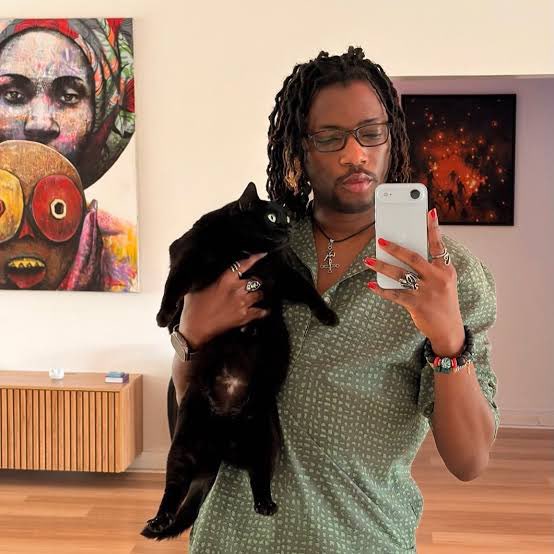
Paystack has suspended its co-founder and Chief Technology Officer, Ezra Olubi, following serious allegations of sexual misconduct and abuse raised by his former partner, Max Obae.
The suspension, announced on November 14, 2025, comes amid growing scrutiny of conduct and power dynamics within Nigeria’s tech ecosystem.
Obae accused Olubi of manipulative, coercive, and emotionally abusive behaviour during their relationship, alleging that this extended into the workplace, where Olubi reportedly mistreated subordinates. The claims sparked wide public outrage, amplified by the resurfacing of decade-old posts from Olubi’s X (formerly Twitter) account containing explicit references to bestiality and pedophilia.
In a public statement, Paystack confirmed that Olubi had been immediately suspended pending the outcome of a formal internal investigation. The company reiterated its commitment to maintaining a safe and respectful environment for employees, customers, and partners.
The allegations have reignited broader conversations around accountability, workplace ethics, and abuse of power in the Nigerian tech scene an industry long praised for innovation but increasingly challenged to confront issues of misconduct within its ranks.
Follow BONA NAIJA for more
News
Court Orders Suspension of PDP National Convention Over Lamido’s Exclusion
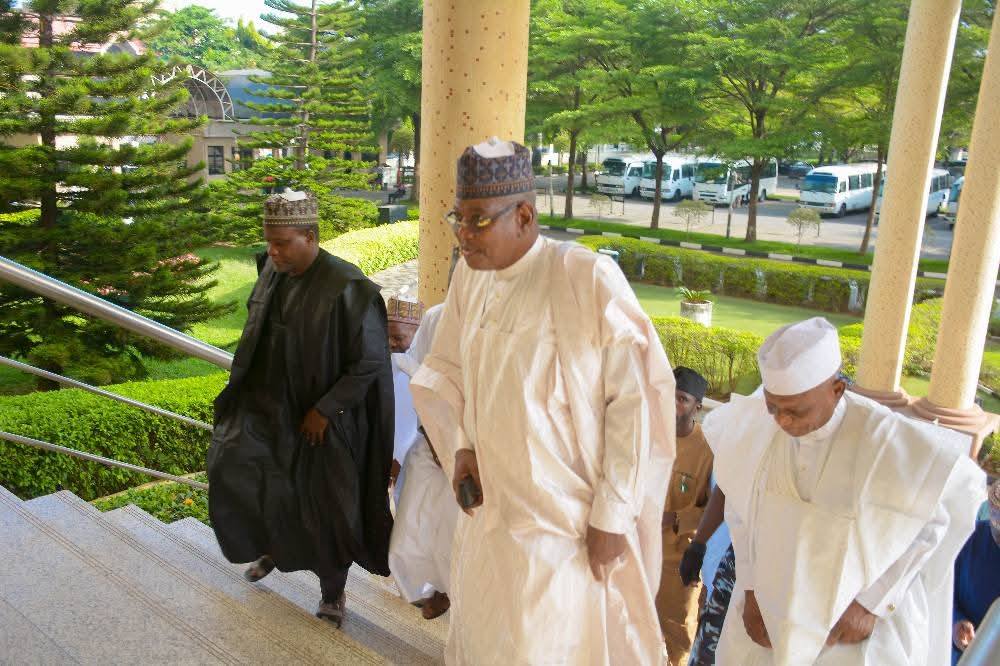
A Federal High Court has ordered the suspension of the Peoples Democratic Party (PDP) National Convention until former Jigawa State Governor Sule Lamido is allowed to fully participate in the chairmanship contest.

In a ruling delivered on Friday, the court held that the party must permit Lamido to purchase the nomination form, undergo screening, and contest for the national chairmanship position. The judge stated that preventing the former governor from acquiring the form amounted to a violation of his constitutional and party rights.
The court emphasized that proceeding with the convention without resolving Lamido’s complaint would constitute a breach of fair hearing and due process, noting that internal party democracy must comply with established legal standards.
Additionally, the court directed the Independent National Electoral Commission (INEC) to refrain from monitoring or recognizing the convention until the PDP fully complies with the order.
The PDP has not yet issued an official reaction to the ruling.
Follow BONA NAIJA for more
News
Obiano Alive, Former Aide Debunks Death Report of Ex-Anambra Governor
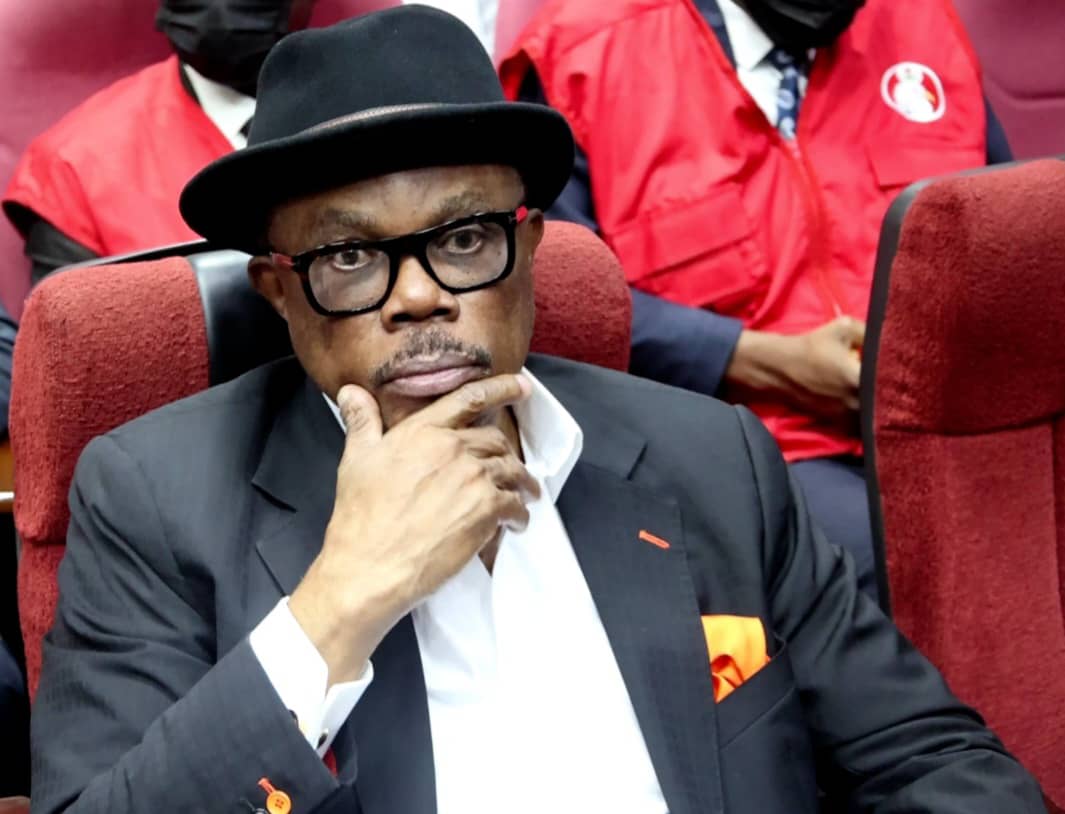
Former Anambra State Commissioner for Information, Mr. C-Don Adinuba, has dismissed reports claiming that ex-Governor Willie Obiano has died in London. Adinuba said that the former governor is alive, strong, and residing in Houston, Texas, United States.
SaharaReporters reported on Friday that Obiano had passed away in London after health complications.
Speaking in a telephone interview, Adinuba described the claims as “provocative,” “unfounded,” and entirely false.”
“I just spoke with the former governor and members of his family a few minutes ago. He is hale and hearty in Houston, United States, where he resides,” Adinuba said.
“Contrary to the reports, Obiano is not in London and has not been hospitalised. He is strong, hale, and hearty… Please ignore the rumour it is fake.”
He urged the public to disregard what he called a deliberate spread of misinformation.
Obiano’s personal publicist, Tony Nezianya, also said he had not received any information confirming the rumoured death.
“I can’t confirm this; I am not aware of such news,” Nezianya told our correspondent.
Background
Willie Obiano served as Governor of Anambra State from 2014 to 2022, succeeding Peter Obi and handing over to the current governor, Prof. Chukwuma Charles Soludo.
Born on August 8, 1955, Obiano hails from Aguleri in Anambra East LGA.
He is currently facing an EFCC investigation over an alleged ₦4 billion fraud during his tenure.
Follow BONA NAIJA for more
Africa
African Union Rejects Christian Genocide Claims in Nigeria After Trump Threats

The African Union (AU) has firmly dismissed allegations of a “Christian genocide” in Nigeria, countering recent claims and implied threats of U.S. military intervention made by President Donald Trump.
Speaking at a United Nations press conference on Wednesday, African Union Commission Chairperson Mahmoud Ali Youssouf described the allegations as “dangerously misleading” and warned against external narratives that could inflame tensions in Nigeria.
“There is no evidence of a systematic campaign aimed at exterminating Christians in Nigeria,” Youssouf stated. “Extremist groups such as Boko Haram and ISWAP have, in fact, targeted far more Muslims than Christians since their insurgency began in 2009.”
AU: Violence Is Terrorism, Not Religious Cleansing
Youssouf explained that the AU continues to monitor the security situation in Nigeria’s northeast, where Boko Haram’s insurgency remains active. He stressed that the violence does not fit the definition of genocide and should instead be understood as “indiscriminate terrorism driven by extremist ideology, not religious policy.”
Nigeria Agrees with AU Position
The Nigerian government has also rejected Trump’s characterization of events. Officials say that both Christian and Muslim communities have suffered, and that framing the conflict as a religious war undermines counterterrorism cooperation.
AU Warns Against Foreign Military Intervention
Responding to Trump’s threat of possible military action to “protect Christians,” Youssouf urged the U.S. to avoid unilateral decisions.
“Nigeria is a sovereign state. Any intervention must be coordinated with African institutions and grounded in facts, not political sentiment,” he said.
He added that mischaracterizing Nigeria’s complex security challenges could worsen religious tensions and derail stabilization efforts.
Follow BONA NAIJA for more
News
Seyi Vibez Drops Fuji Moto Album Featuring Trippie Redd, French Montana, NLE Choppa & Olamide
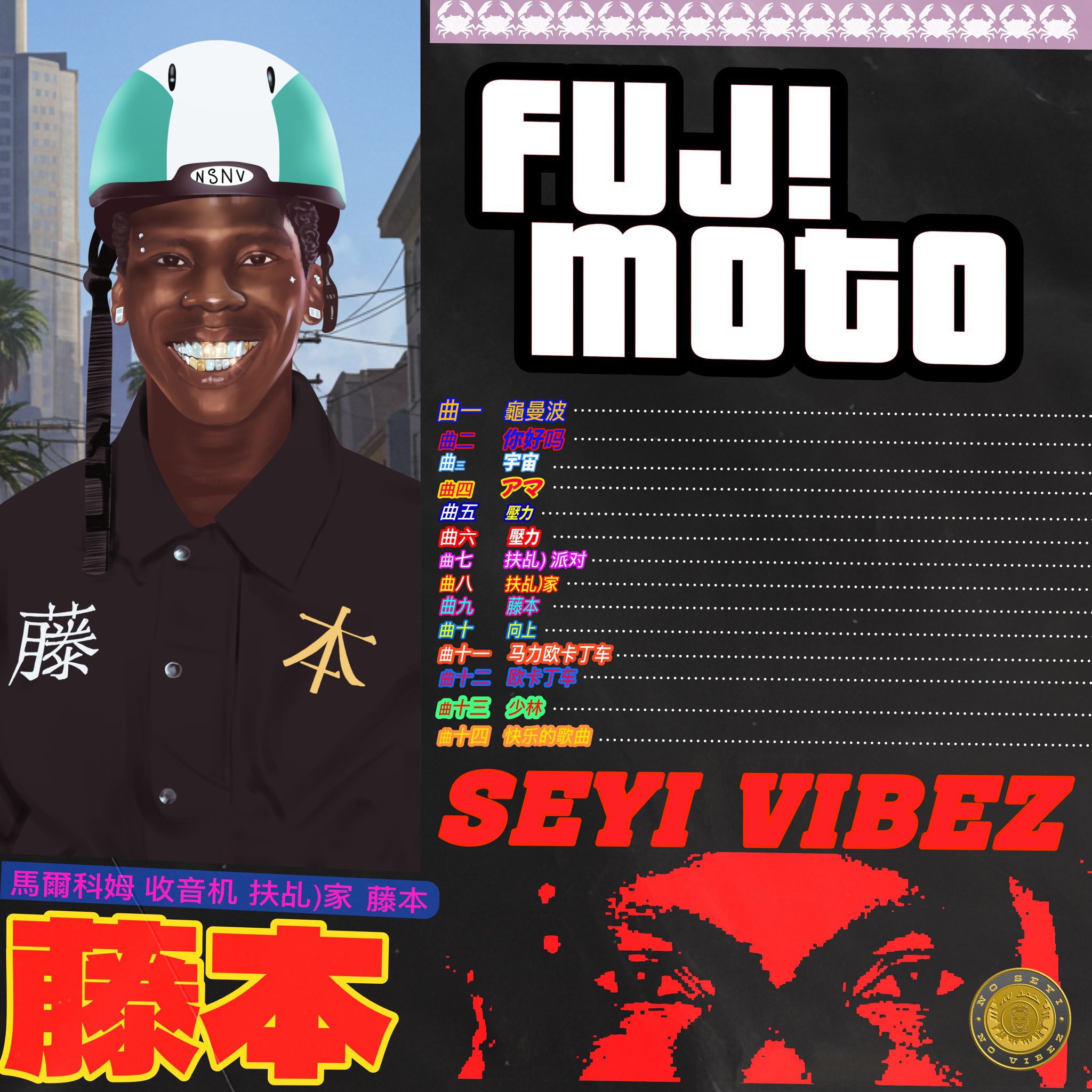
Nigerian Afrobeats sensation Seyi Vibez has released his highly anticipated album Fuji Moto, a 14-track project that fuses Fuji rhythms with trap, street-hop, and melodic Afro-fusion. The album arrived on November 14, 2025, under EMPIRE, marking one of Seyi Vibez’s most ambitious creations yet.
Fuji Moto features standout international and local collaborations, including Trippie Redd, French Montana, NLE Choppa, and Nigerian rap icon Olamide. The project also includes several deep, introspective solo tracks where Seyi Vibez reflects on pain, resilience, spirituality, and his rise from the trenches to global acclaim.
Within hours of release, the album debuted at No. 2 on the Apple Music Nigeria Top Albums chart and quickly became Seyi Vibez’s most-streamed project ever on Spotify, reinforcing his status as one of the most influential voices in modern Afrobeats and street music.
With its blend of traditional Fuji influences and contemporary sonic experimentation, Fuji Moto cements Seyi Vibez’s reputation for pushing boundaries and representing the sound of the streets on a global stage.
Follow BONA NAIJA for more
-
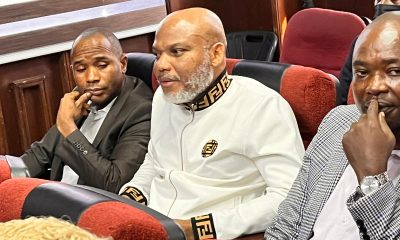
 Abuja3 weeks ago
Abuja3 weeks agoIPOB Leader Nnamdi Kanu Declines to Enter Defence, Insists “No Case” Against Him
-
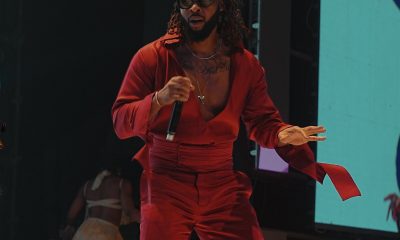
 Music News4 weeks ago
Music News4 weeks agoFlavour Unveils ‘Afroculture’ Single Featuring Baaba Maal, Directed by TG Omori
-

 World News3 weeks ago
World News3 weeks agoTwo Killed, Two Injured as Plane Bursts Into Flames After Takeoff Crash in Venezuela
-
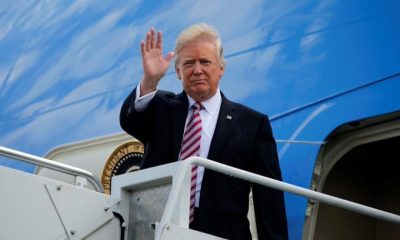
 World News2 weeks ago
World News2 weeks agoTrump asks Pentagon to immediately start testing U.S. nuclear weapons
-

 World News1 week ago
World News1 week agoUS Military Submits Contingency Plan for Action in Nigeria
-
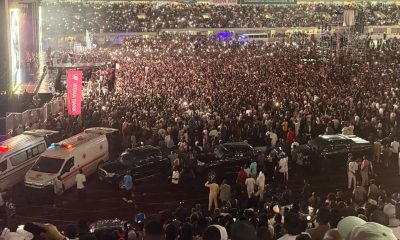
 Entertainment3 weeks ago
Entertainment3 weeks agoDavido Kicks Off ‘5ive Alive’ Tour with Sold-Out Uyo Stadium Show
-

 Music2 weeks ago
Music2 weeks agoMusic: Badshah and Davido Launch Cross-Cultural Hit “Wallah Wallah”
-

 Music3 weeks ago
Music3 weeks agoBritish Rapper Dave Unveils Third Studio Album ‘The Boy Who Played the Harp’
-

 News2 weeks ago
News2 weeks agoGround Operation, Air Strikes Could Be Part of US Attack in Nigeria – Trump
-

 Entertainment2 weeks ago
Entertainment2 weeks agoBurna Boy Makes Twitch Debut with PlaqueBoyMax in Freestyle Session


